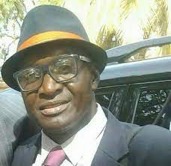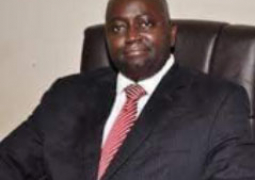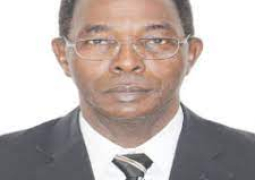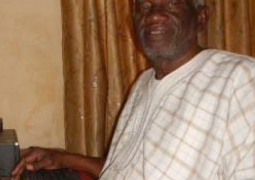
On the other hand, NPP supporters, fully back the government’s version of the bill. The Ministries of Justice and Information have promised to soon clarify the so-called "unacceptable" amendments made by the executive, arguing that these changes merely corrected flaws which makes the document better and ready for ratification. However, opposition critics seem unwilling to consider these explanations, which I find somehow prejudicial.
It’s worth recalling that in 2020, prominent legal figures like Senior Lawyer Lamin J. Darbo exposed how the Constitutional Review Commission (CRC) deviated from its mandate by plagiarizing the Kenyan constitution and secretly introducing retroactive provisions. This led to widespread public outcry across the political spectrum, resulting in the National Assembly (NA) rejecting the draft. Therefore, claims that the 2020 constitution was flawless and should remain untouched are indeed baseless.
Since then, the National People’s Party (NPP) government, criticized both domestically and internationally for not advancing a new constitution, has been dealing with this Kenyan-inspired draft, which, after costing taxpayers millions of dalasis, couldn’t be easily discarded. The NPP and its supporters eventually recognized that the CRC was not only acting beyond its mandate but may have also colluded with opposition forces to push their agenda.
It became apparent that the government had two options: either amend the 1997 constitution, which remains in force despite often being criticized as “Jammeh’s constitution,” or stick with the copied 2020 version. The Barrow administration opted for the latter, tailoring it to its political interests, as any government would.
In my analysis, which draws on political, social and security perspectives shaped by both experience and education, I often consider the legacies of all three generations of Gambian presidents since independence. The discussion on a good constitution is no exception.
The 1970 parliamentary-democracy constitution under the PPP government, although rarely discussed today, was once seen by experts as nearly perfect. However, it had significant flaws, as it was largely drafted by British colonial authorities, with major contributions from Sir Philip Bridges, a British-Gambian who remained loyal to the British crown until his retirement and return to England. When the Armed Forces Provisional Ruling Council (AFPRC) government replaced it, most Gambians supported the decision, recognizing the old constitution’s shortcomings, which primarily served those in power.
One glaring issue was that Sir Philip Bridges, a dual British-Gambian citizen and key drafter of the constitution, was appointed Minister of Justice despite a clause disqualifying dual citizens from holding that office. Additionally, the constitution allowed foreign nationals, such as British, Pakistani, and Nigerian citizens, to serve as Chief Justices, prosecutors, and judges, while the dual citizenship paragraph strictly prohibited that.
The PPP constitution also lacked transparency and accountability in elections, as government institutions controlled by presidential appointees were responsible for conducting and tallying votes, leading to widespread rigging.
In the 1992 presidential election—the last before the Gambia National Army (GNA) overthrew the PPP government—President Jawara won with 117,549 votes, securing 58.48% of the total. However, when he was ousted two years later, in 1994, most Gambians celebrated, recognizing that a coup, rather than an election, was the only way to end the PPP’s prolonged grip on power. While I strongly oppose military coups and condemn any use of violence to make political points, it's clear that the threats from some opposition elements against the Barrow government regarding this constitution and his potential bid for a third term are worrisome. Stirring unrest is easy, but restoring stability in a chaotic nation is a formidable challenge.
Of course, there were legitimate reasons for the AFPRC to replace the neo-colonial PPP constitution with a new one drafted solely by Gambians. However, as the Economic Community of West African States (ECOWAS) praised the Barrow government for Gazetting the revised Gambian constitution, the bloc also noted that no constitution is perfect. To underscore the imperfection of constitutions, including that of the United States, consider that in its over 200-year history, the American Constitution has been amended 27 times. Notably, the Civil War of the 1860s stemmed from deep-seated conflicts over slavery, an issue that had been contentious since the nation’s founding. Yet, there was never a time when any new president or government thought of drafting a new constitution. You see, Since the introduction of the first constitution, dating back to 1776 BCE in the Babylonian Kingdom under King Hammurabi, leaders have historically crafted constitutions not only to align with their political objectives but, more importantly, to maintain control over the complex societies they govern
Honestly speaking, in hindsight, the parliamentary democracy embedded in the 1970 constitution was, to me, politically superior to the 1997 version. But President Jammeh shaped the 1997 constitution to fit his political agenda, amending it over 50 times to consolidate his rule.
Let us not forget that he AFPRC military government gained popularity in 1994 by assuring Gambians that a president would be limited to two five-year terms and that an independent electoral commission, free from government influence, would be established. After extensive consultations with the public, these provisions, along with various checks and balances, were included in the 1997 draft constitution.
Interestingly, Mr. Jaye Sowe, a senior member of the CRC, once claimed to possess an original, untouched copy of the 1997 constitution. I understand that Hon. Halifa Sallah of the PDOIS party suggested reviewing and adopting this version in 2018, instead of drafting a new one, as it would be less costly. However, his coalition partners ignored this advice.
Crucially, just before the 1996 referendum to approve the constitution, the AFPRC, with the assistance of certain legal experts—whose identities are known—removed the vital presidential term-limit clause. At the time, most Gambians and even some non-Gambians overlooked this, believing that Jammeh and his military colleagues would not run in the upcoming presidential election and would instead return to the barracks, paving the way for a more stable civilian government.
However, by 1996, the beneficiaries working for or with the military government—primarily educated civilians, the business community, religious leaders and militants—began supporting everything Jammeh wanted. Nobody objected when he persuaded Gambian elders to urge him to retire from the army and run for president, the position he held for over two decades.
In retrospect I believe the original 1997 version possessed by Mr. Jaye Sowe would have been better than the 2020 constitution draft, which was largely plagiarized from Kenya.
It’s however hard to solely blame presidents for altering constitutions to suit their political ambitions when the drafters themselves often show bias and anti-government stances. In The Gambia, life after the presidency has not been appealing for former leaders, their officials, or loyal supporters. Until that changes—with guarantees of smooth transitions and dignified retirement—I believe governments will continue modifying constitutions to extend their hold on power.
When President Adama Barrow’s coalition government came to power in 2017, they had the support and resources to amend the 1997 constitution at minimal cost. They could have easily reinstated the presidential term limit that Jammeh removed, just as they did with the age limit and the 50-plus-one majority requirement to elect a president. Instead, they focused on removing political barriers that conflicted with their immediate ambitions. We all know what happened then—there’s no need to revisit the details.
In fact, the coalition’s original three-year gentleman’s agreement, aimed at sparking “genuine political transformation,” was undermined by its own stakeholders. But they continued to blame everything on Jammeh’s outdated and flawed 1997 constitution instead of taking responsibility.
What I still believe to be the main sticking point in the latest version of the new constitution and was missing in previous ones is the much desired presidential term limit. Though included now, the clause recommending retroactive implementation was deemed unacceptable by the government and their supporters. The executive’s rejection of this measure was the primary reason the draft failed to pass in the National Assembly initially. President Barrow and his allies are reluctant to step down in 2026, and given the opposition’s persistent threats of prosecution for alleged “crimes committed in office,” their hesitation is understandable. Ironically, extended time in power could also lead to more such accusations and threats.
Despite all that, many remain optimistic that the revised constitution will pass both in the National Assembly and in a referendum, with the required 50% voter turnout. If successful, all provisions will take effect immediately, potentially giving President Barrow another ten-year tenure if he continues to win elections.
Looking at the current political landscape, the opposition lacks a viable candidate with a compelling vision to replace President Barrow. Most aspirants are well-known figures who seem more interested in taking over than in fundamentally overhauling the system. Such systemic change appears unlikely, so I am inclined, for now, to support the government-modified constitution. As a matter of fact it directly addresses an issue affecting me personally—the lifting of restrictions on dual citizens, allowing them to hold ministerial positions and run for the National Assembly. I also believe future governments will continue to amend the constitution as needed to maintain stability and order in the country.
In conclusion, I believe that the 1970 constitution was a solid foundation that the AFPRC government could have simply modified in 1996 instead of drafting a new one in 1997. Similarly, the original 1997 constitution, still available and untouched, could have been slightly revised instead of creating a controversial new draft in 2020, which risks never passing and has already deepened political divisions. My point is that we should focus on updating an already ratified constitution to save time, energy, and resources. That said, the latest gazetted version could still be acceptable, with the hope that those who oppose it will maintain calm and avoid resorting to violence as one Mr. Ebrima Dibba of the United Democratic Party has threatened in a recent audio.




